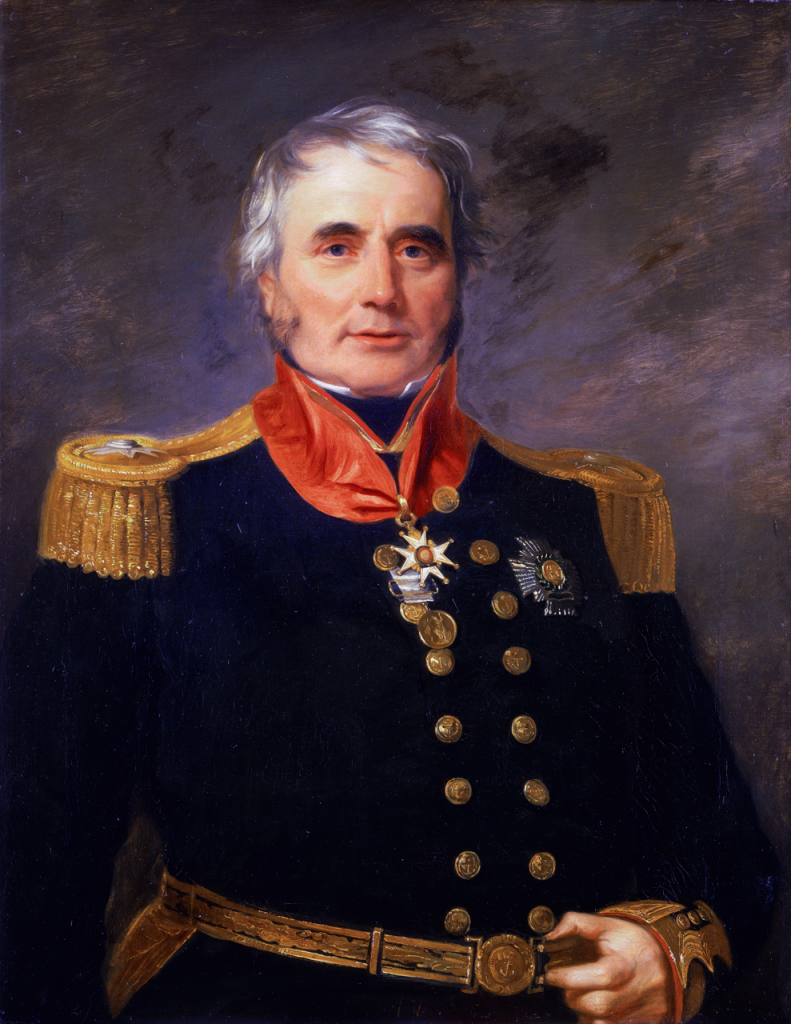
Sir James Wylie lived from 13 November 1768 to 2 March 1854. Born and brought up in Tulliallan, now effectively part of Kincardine on Forth, he was a doctor who rose to become the Russian imperial court surgeon. The wider picture in Scotland at the time is set out in our Historical Timeline.
James Wylie was the second of five children of the parish minister William Wylie and his wife Janet Meiklejohn. When he finished school he became an apprentice to a local doctor. He then studied medicine at the University of Edinburgh from 1786. What happened next is a little murky, but it seems likely that in 1790 Wylie fell foul of the authorities before completing his studies, possibly for stealing sheep, and found it expedient to leave Scotland in a hurry.
The ship on which Wylie left Leith was bound for Riga in Latvia, and once there Wylie signed up for service as a surgeon in the Eletsky Infantry Regiment of the Russian army. He took part in the Polish–Russian War of 1792 and in military operations against the Kościuszko Uprising, culminating in the Second Battle of Warsaw of 1794. It was during this period that Wylie first tried to improve the standard of medical services in the Russian army. Until then it had been the norm only to treat wounded officers, leaving other ranks to fend for themselves, which in practice meant they usually died.
In 1794 Wylie was awarded the degree of Doctor of Medicine from King’s College, Aberdeen. He left the Russian army and set up in practice as a doctor in Saint Petersburg. Here his reputation as a successful surgeon grew rapidly. One operation, on Count Ivan Kutaisov, the closest confidant of Tsar Paul I, resulted in Wylie’s appointment as surgeon to the court of the tsar. On 23 March 1801, Paul I was murdered by a group of army officers who wanted to replace him with his son, who became Alexander I as a result. Wylie agreed to sign a death certificate that incorrectly gave the cause of death as “apoplexy”.
In 1804 Alexander I invited Wylie back into military service as Medical Inspector of the Imperial Guard. On 2 December 1805 he accompanied the Tsar during the Battle of Austerlitz. In 1808 Wylie was elected President of the Imperial Medical and Surgical Academy in Saint Petersburg. He was appointed Inspector General for the Army Board of Health in 1806, and became Director of the Medical Department of the Imperial Ministry of War in 1812. During this period he succeeded in transforming the medical services in the Russian army, which he had found so inadequate during his first spell in military service. He also played an important personal role as a surgeon. It is said that at the Battle of Borodino on 7 September 1812 he performed some 80 operations in the field.
Wylie accompanied Tsar Alexander I on a visit to England in 1814, and at the Tsar’s request was knighted by the Prince Regent and created a baronet. Wylie was with Alexander I when he died at his summer palace in southern Russia on 1 December 1825. The tsar had long suffered from depression and it was rumoured at the time (and has been rumoured ever since) that Wylie faked the tsar’s death certificate in order to allow him to retreat to a life as a monk.
Whatever the truth of that, Wylie continued to serve the Russian court under Alexander’ successor and brother, Tsar Nicholas I. He also continued to play an active role in Russian’s military campaigns up to and including the the Russo-Turkish war of 1828/9, taking part in some 50 battles in all. Sir James Wylie died in Saint Petersburg on 2 March 1854 and was buried at the Volkovo Lutheran Cemetery in the city.
HAPPY EASTER FRIENDS.. STAY SAFE, STAY HOME.
Discover more from WILLIAMS WRITINGS.
Subscribe to get the latest posts sent to your email.











